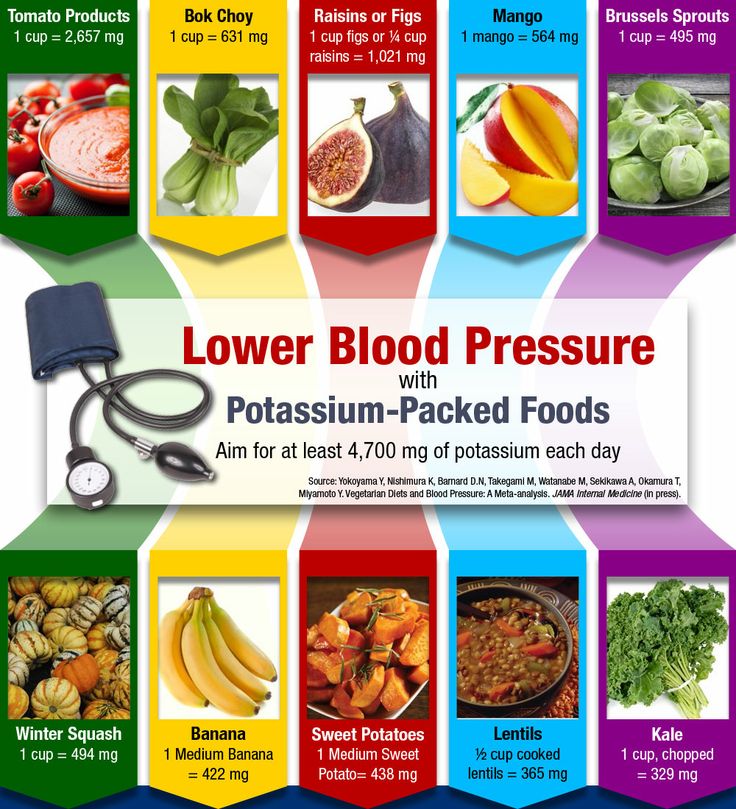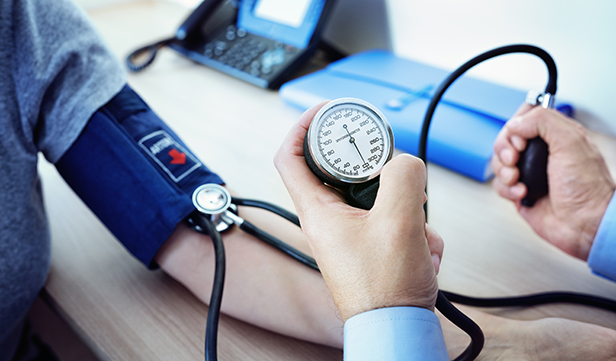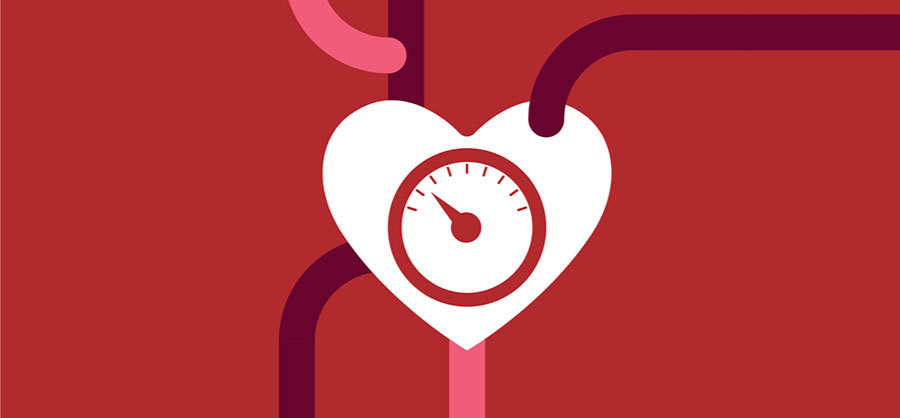Lower blood pressure by exercising regularly and following a healthy diet rich in fruits and vegetables. Making lifestyle changes can help manage hypertension effectively and improve overall health.
High blood pressure, also known as hypertension, can lead to serious health issues if left untreated. It is important to take steps to lower blood pressure naturally and prevent complications. In this blog post, we will discuss various strategies and tips to help you maintain healthy blood pressure levels.
By incorporating these practices into your daily routine, you can reduce the risk of heart disease, stroke, and other cardiovascular conditions associated with high blood pressure. Let’s explore how you can take control of your blood pressure and lead a healthier life.
Introduction To Natural Blood Pressure Management
The Importance Of Maintaining Healthy Blood Pressure
Elevated blood pressure can lead to serious health issues such as heart disease and stroke. It is crucial to actively manage and maintain healthy blood pressure levels to reduce the risk of these conditions.
Why Natural Methods Are Gaining Popularity
Natural methods for managing blood pressure have gained popularity due to their effectiveness and fewer side effects compared to pharmaceutical interventions. Many people are turning to natural remedies and lifestyle adjustments to achieve and maintain healthy blood pressure levels.

Credit: www.pcrm.org
Dietary Adjustments For Blood Pressure Control
Lowering blood pressure through dietary adjustments is a crucial aspect of managing hypertension. By making informed choices about the foods we consume, it is possible to positively impact our blood pressure levels and overall health. Let’s explore some dietary adjustments that can aid in blood pressure control.
Salt Reduction: Benefits And Methods
Reducing salt intake can have a significant impact on blood pressure levels. Excessive salt consumption can lead to fluid retention and increased blood volume, resulting in elevated blood pressure. By limiting salt intake, individuals can mitigate these effects and contribute to lower blood pressure levels.
- Use herbs and spices to flavor food instead of salt.
- Avoid processed and packaged foods, which often contain high levels of sodium.
- Read food labels carefully to monitor sodium content.
Potassium-rich Foods To Balance Sodium Levels
Consuming foods rich in potassium can help balance sodium levels in the body, thereby aiding in blood pressure control. Potassium counteracts the adverse effects of sodium, promoting vasodilation and excretion of excess sodium through urine.
- Bananas
- Oranges
- Spinach
- Avocados
The Role Of Physical Activity
Engaging in regular physical activity is crucial for reducing blood pressure levels and improving overall cardiovascular health. Exercise helps to strengthen the heart and improve blood circulation, leading to lower risks of hypertension and related health issues.
The Role Of Physical Activity In Lowering Blood Pressure
Physical activity plays a crucial role in maintaining a healthy lifestyle, and it is particularly important for people with hypertension. Regular exercise can help lower blood pressure and reduce the risk of heart disease, stroke, and other health problems. In this blog post, we will discuss the different types of exercises recommended for hypertension and how regular activity benefits your heart.Types Of Exercises Recommended For Hypertension
There are various types of exercises that are recommended for people with hypertension. Here are some examples:- Aerobic exercises: These exercises increase your heart rate and help improve cardiovascular health. Examples include jogging, cycling, swimming, and dancing.
- Resistance training: These exercises involve using weights or resistance bands to strengthen your muscles. Examples include push-ups, squats, and lunges.
- Flexibility exercises: These exercises help improve your range of motion and prevent injuries. Examples include yoga, stretching, and Pilates.
How Regular Activity Benefits Your Heart
Regular physical activity has numerous benefits for your heart, including:- Reducing blood pressure: Exercise helps lower blood pressure by making your heart stronger and more efficient at pumping blood.
- Improving blood flow: Physical activity helps improve blood flow to your heart and other organs, which can reduce the risk of heart disease and stroke.
- Lowering cholesterol levels: Exercise can help reduce bad cholesterol (LDL) levels and increase good cholesterol (HDL) levels, which can improve heart health.
- Reducing inflammation: Regular physical activity can help reduce inflammation in the body, which is a risk factor for heart disease.
Stress Management Techniques
Lowering blood pressure can be achieved through various stress management techniques. Stress has a significant impact on blood pressure, so it is essential to find effective ways to manage it. Two popular techniques that have proven to be beneficial are mindfulness and meditation practices.
Mindfulness And Meditation Practices
Mindfulness and meditation practices offer a range of benefits for managing stress and ultimately lowering blood pressure. These techniques involve bringing your attention to the present moment and focusing on your breath or a specific object of concentration.
Here are some ways mindfulness and meditation can help reduce stress and lower blood pressure:
- Stress Reduction: Mindfulness and meditation techniques promote relaxation and calmness, reducing the body’s stress response and lowering blood pressure.
- Improved Emotional Well-being: These practices can enhance emotional well-being by reducing anxiety, depression, and negative emotions that contribute to high blood pressure.
- Enhanced Self-awareness: Mindfulness and meditation increase self-awareness, helping individuals recognize stress triggers and better manage their responses.
- Improved Sleep Quality: Regular practice of mindfulness and meditation can improve sleep quality, which is essential for maintaining healthy blood pressure levels.
- Increased Focus and Concentration: These practices strengthen concentration and focus, allowing individuals to better manage stressors and maintain a sense of calm.
By incorporating mindfulness and meditation into your daily routine, you can effectively manage stress and promote lower blood pressure levels. These practices are accessible to everyone and can be easily integrated into your lifestyle.
Remember, taking care of your mental well-being is just as important as caring for your physical health. Embracing mindfulness and meditation as stress management techniques can lead to a healthier and more balanced life.
Limiting Alcohol And Quitting Smoking
Lower blood pressure by limiting alcohol intake and quitting smoking. These lifestyle changes can significantly improve your heart health. Start today for a healthier tomorrow.
How Tobacco And Alcohol Affect Blood Pressure
Both tobacco and alcohol can have detrimental effects on blood pressure levels. Smoking cigarettes or using other tobacco products can lead to an immediate increase in blood pressure. This is because the chemicals in tobacco cause the blood vessels to narrow and constrict, forcing the heart to work harder to pump blood throughout the body. Over time, this can lead to chronic high blood pressure.
Similarly, excessive alcohol consumption can also lead to an increase in blood pressure. Alcohol is a vasodilator, meaning it causes the blood vessels to widen. While this may sound beneficial, it actually puts additional strain on the heart as it has to work harder to pump blood through the dilated vessels. Additionally, alcohol can interfere with the effectiveness of blood pressure medications.
Tips For Reducing Intake And Cessation
If you are looking to lower your blood pressure, reducing or quitting alcohol and tobacco use are crucial steps to take. Here are some tips to help you get started:
Limiting Alcohol Intake:
- Set realistic goals: Determine how many days a week you want to consume alcohol and set a limit on the number of drinks per day.
- Choose lower-alcohol options: Opt for light beer or wine with lower alcohol content to reduce your overall intake.
- Stay hydrated: Drinking water in between alcoholic beverages can help slow down your alcohol consumption.
- Avoid binge drinking: Instead of consuming a large amount of alcohol in a short period, pace yourself and spread out your drinks.
- Seek support: If you find it difficult to limit your alcohol intake, consider joining a support group or seeking professional help.
Quitting Smoking:
- Set a quit date: Choose a specific date to quit smoking and stick to it.
- Identify triggers: Recognize situations or emotions that make you crave a cigarette and develop strategies to cope with them.
- Get support: Seek support from friends, family, or join a smoking cessation program to increase your chances of success.
- Find healthier alternatives: Replace the habit of smoking with activities such as exercise, deep breathing, or chewing sugar-free gum.
- Stay positive: Remind yourself of the benefits of quitting smoking, such as improved blood pressure and overall health.
By taking these steps to limit alcohol intake and quit smoking, you can significantly reduce your risk of high blood pressure and improve your overall well-being.

Credit: www.apwuhp.com
The Power Of Weight Management
Link Between Obesity And Hypertension
Obesity and high blood pressure are closely linked. Excess weight can strain the heart and lead to hypertension. The more fat tissue you have, the harder your heart has to work to pump blood throughout your body.
Effective Strategies For Losing Weight
- Healthy diet: Eating a balanced diet with plenty of fruits, vegetables, and lean proteins can aid weight loss.
- Regular exercise: Engaging in physical activity for at least 30 minutes most days of the week can help shed pounds.
- Monitoring portion sizes: Being mindful of portion control can prevent overeating and promote weight management.
Monitoring Your Blood Pressure At Home
Keep your blood pressure in check by monitoring it at home regularly. Lower blood pressure can be achieved by maintaining a healthy lifestyle and keeping stress levels in check. By tracking your readings, you can take proactive steps to keep your blood pressure within a healthy range.
Choosing The Right Home Blood Pressure Monitor
Consider automatic cuff monitors for ease of use.
Ensure the cuff size fits your arm properly.
Opt for monitors validated by medical associations.
How To Accurately Measure Your Blood Pressure
Sit in a quiet place with feet flat on the floor.
Rest your arm on a table at heart level.
Wrap the cuff snugly around your upper arm.
Press the start button and remain still during measurement.

Credit: www.dignityhealth.org
Conclusion: Embracing A Holistic Approach
Embracing a holistic approach is key to lowering blood pressure. By incorporating lifestyle changes such as regular exercise, a balanced diet, stress management techniques, and medication if necessary, individuals can effectively manage their blood pressure levels and improve overall health.
Summary Of Natural Methods To Lower Blood Pressure
Maintaining a balanced diet with low sodium intake. Regular physical activity and exercise. Limiting alcohol consumption and quitting smoking. Reducing stress through relaxation techniques like meditation.The Importance Of Consistency And Patience
Consistency in lifestyle changes is key. Patience is crucial for long-term results. Embracing a holistic approach yields sustainable benefits.Frequently Asked Questions
How Can I Lower My Blood Pressure Naturally?
Lowering blood pressure naturally can be achieved through lifestyle changes. Engaging in regular physical activity, maintaining a healthy weight, reducing sodium intake, increasing potassium consumption, managing stress levels, and limiting alcohol and caffeine intake are effective strategies. Additionally, following a balanced diet rich in fruits, vegetables, whole grains, and lean proteins can also help in lowering blood pressure naturally.
What Are The Risks Of High Blood Pressure?
High blood pressure, if left untreated, can lead to various health complications. It increases the risk of heart disease, stroke, kidney problems, and even vision loss. Additionally, it can also contribute to the development of other chronic conditions such as diabetes.
Managing and controlling high blood pressure is crucial to minimize the risks associated with this condition.
Can Stress Affect Blood Pressure?
Yes, stress can have a significant impact on blood pressure levels. When stressed, the body releases stress hormones that cause the heart to beat faster and blood vessels to narrow, resulting in increased blood pressure. Chronic stress can lead to long-term elevation of blood pressure, making it important to manage stress through relaxation techniques, exercise, and adopting a healthy lifestyle.
What Is The Dash Diet And How Does It Lower Blood Pressure?
The DASH (Dietary Approaches to Stop Hypertension) diet is a proven approach to lower blood pressure. It emphasizes consuming fruits, vegetables, whole grains, lean proteins, and low-fat dairy products. The diet is rich in nutrients such as potassium, calcium, and magnesium, which help reduce blood pressure.
By following the DASH diet, individuals can effectively lower their blood pressure levels and improve overall heart health.
Conclusion
Lowering blood pressure is crucial for maintaining good health and preventing serious health conditions like heart disease and stroke. By adopting a healthy lifestyle, including regular exercise, a balanced diet, and stress-reducing techniques, you can naturally lower your blood pressure.
Additionally, medications may be prescribed by your doctor to help control high blood pressure. Remember, small changes can make a big difference in your overall health. So, start taking steps today to lower your blood pressure and improve your quality of life.